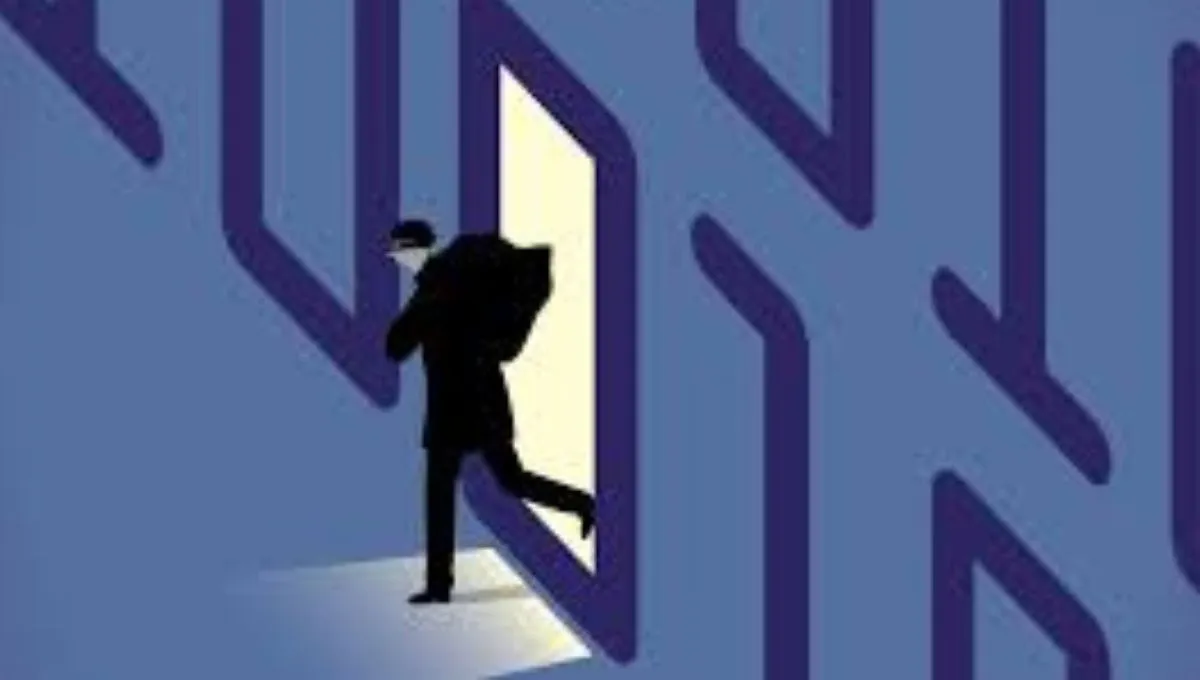Introduction
Can VPN Prevent Hacking? we are also answering that burning question. This is why cybersecurity is no longer a problem of the IT department.
Being honest with you, it is no longer something you hear in the movies when it comes to hacking. It is occurring on a daily basis and frankly speaking, considering that you have access to the internet then you are already a victim. Phishing attacks to malicious software, cybercriminals are playing the game of leg-up-another-notch and winning.
It’s your issue. You have to be on your guard, whether you are at home working, are shopping on the Internet, or you are simply scrolling through memes.
But you see, I will watch your back. Let us enter the online war arena: Cybersecurity vs. Hackers.
The Never-Ending Battle: Cybersecurity vs. Hackers
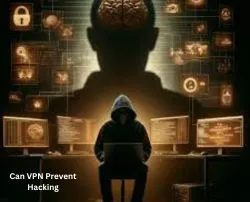
Why Hackers Are Getting Smarter
Hackers are no longer dressed in dark basements in their hoodies. Most of them are professionals, real cyber mercenaries, and they can use weak links to hack into your system much faster than you can say, oops. They are deploying AI, machine learning and social engineering tricks to manipulate even the wits. So, Can VPN Prevent Hacking?
The Evolution of Cybersecurity Tools
Fortunately, the field of cybersecurity has progressed as well. We have firewalls, biometric logins, machine-learning based threat detection, etc. we are not defenceless. The only thing though is that tools must be used in order to work.
It’s Not Just a Tech Issue Anymore—It’s Personal
All your banking details, personal conversations, family pictures, all these are on the internet. This is the reason why the need to secure your online life should be as high as the locking of your front door. Situations Where Can VPN Prevent Hacking?
Can VPN Prevent Hacking?
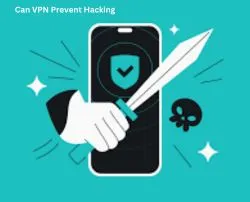
What a VPN Really Does
A VPN (Virtual Private Network) is a type of secret tunnel between the device and the internet. It conceals your IP address and secures your data particularly on a network that is publicly available.
Yes, in most instances, VPN can help avoid hacking, at least the one where someone is attempting to eavesdrop on your data as you enjoy your cafe coffee on a public Wi-Fi network.
Common Misconceptions About VPNs
Something to make straight now is that a VPN is not a force field. It doesn’t block malware. It is not going to make you not click on a sketchy link. And it will not turn your data 100 percent safe.
So, Can VPN Prevent Hacking? Yes, but it is not a silver bullet.
Situations Where Can VPN Prevent Hacking
- Connecting to the Wi-Fi at an airport or cafe? VPN codes your information, thus avoiding hackers.
- Remotely accessing sensitive information? VPN makes your efforts confidential to the cyber snoops.
- Avoiding ISP tracking? VPN is useful in keeping your anonymity to minimize your digital footprint.
Limitations of a VPN
- VPNs will not come to your rescue when you fall into a phishing email.
- They will not defend against viruses unless they are used together with antivirus software.
- There is a risk that when you are not with a reliable VPN provider, you are merely giving your information to another bad man.
Tip 1: Use a Reputable VPN Wisely
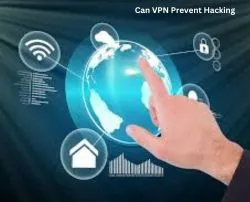
Encrypting Your Data on Public Wi-Fi
Have you ever been using a free hotspot in a cafe that is random? You almost give hackers a welcome into your cyber life. An effective VPN will jumble up your information in such a way that even when someone is listening in on you all they will see is a jumble of letters.
Avoiding Free VPN Traps
Being outspoken, free VPNs are usually traps. They can track your actions, place advertisements or even worse contain viruses in the device. Use well known paid VPNs that are well encrypted and those that have no-log policy. So, Can VPN Prevent Hacking?
Tip 2: Strengthen Your Password Game
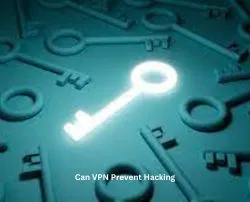
The Problem with ‘Password123’
When you use a password that is qwerty then I have bad news to you: you are easy prey. There are automated bots used by hackers in order to enter the most obvious passwords. Some poor credentials = open door.
Password Managers to the Rescue
A password manager helps to generate and save supreme passwords. You only need to remember one. No longer any more sticky notes or shared logins on 10 sites. Situations Where Can VPN Prevent Hacking?
Tip 3: Keep Your Software Updated
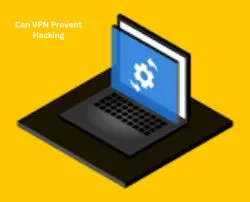
Why Updates Aren’t Just Annoying Notifications
In case developers discover security holes, they fix them- quickly. Failure to update results in leaving the door open to hackers, who are aware that such holes exist.
Patch Early, Patch Often
Activate automatic updates of your operating system, browsers, and plugins as well as applications. Sincerely- it takes a few seconds and might save your computer catastrophe.
Hackers can also compromise two-factor authentication (2FA), which allows users to secure accounts by providing usernames and passwords along with physical devices like mobile phones or computers. So, Can VPN Prevent Hacking?
Tip 4: Enable Two-Factor Authentication (2FA)
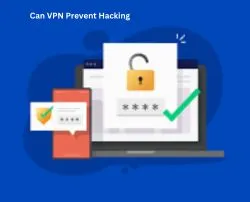
What is 2FA and Why It’s a Must
In 2FA, there will be an additional step in the process of logging in, such as a code delivered to your phone. They cannot log-in without the help of a code, even when that person has stolen your password. It is as if you had a double-deadbolt on your front door.
Better Safe Than Sorry—Examples from Real Life
Millions of high-profile hacks would have been prevented using 2FA. Gmail, Facebook, your internet bank, all of them provide it. When you are not using it, then use it today. Situations Where Can VPN Prevent Hacking?
Tip 5: Beware of Phishing Attacks
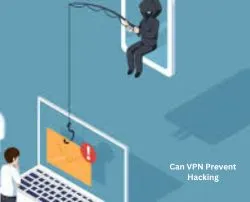
Spotting Red Flags in Emails and Messages
You have been suspended, check here to make sure. Sound familiar? It’s probably a scam. Always verify addresses of senders, hover the links and never release sensitive information.
Social Engineering: The Human Hack
People are usually the ones who are manipulated by hackers. That call by the tech support? Yeah, it might be a scam. Trust your gut. So, Can VPN Prevent Hacking?
Tip 6: Use Antivirus and Firewall Protection
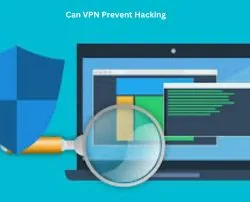
Do You Still Need Antivirus in 2025?
You bet. Even as cyber threats have developed, traditional malware remains effective, and hackers are aware of it. Your system is scanned by the antivirus software and threats are eliminated before they can establish themselves.
Layered Protection Works Best
Install antivirus, firewalls, VPNs and use of strong passwords. Imagine it is like a lock on your door, some of your windows, and a moat full of dragons. Situations Where Can VPN Prevent Hacking?
Bonus Tip: Educate Yourself (And Your Family)
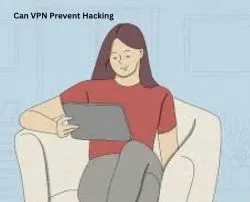
Knowledge Is Your Digital Armor
Being knowledgeable of what to look at is the best defence. Be informed of emerging threats and communicate that.
Cyber Hygiene for All Ages
Teach your kids. Help your parents. Share tips with friends. An enlightened network is a secure network. So, Can VPN Prevent Hacking?
Conclusion
Cybersecurity is not a need to be afraid. You can be smarter than even the most intelligent persons who engage in hacking with the right habits and tools. Among the many steps, like using antivirus and 2FA, these tiny measures should be taken into consideration and contribute to enormous protection.
And the fact that Can VPN Prevent Hacking, under some circumstances, such as in on shoddy open Wi-Fi networks, is only part of the story.
Now lock up your online existence. It seems that the most appropriate time to increase your cybersecurity is yesterday. The second-best time? Right now.
FAQs
No. A VPN is beneficial, particularly over open Wi-Fi, but it is not able to prevent malware, phishing, or weak passwords. It is a toolbox coat of arms.
Better, at least, than none. VPNs codes your traffic such that no snooping can be done. Simply do not connect to your bank account with a free cafe Wi-Fi without a VPN.
Be cautious of suspicious log in notifications, unwarranted invoices or password reset. A suspicion should be responded to swiftly.
Usually not. The majority of free VPNs sell your information or they were not adequately encrypted. In case of privacy concerns, a paid and reputed VPN company is the way to go.
As often as possible. Auto-updates on, and inspect monthly. One of the simplest targets of hackers is old software.

